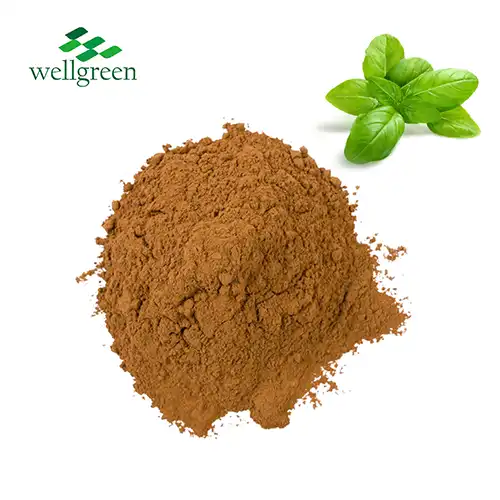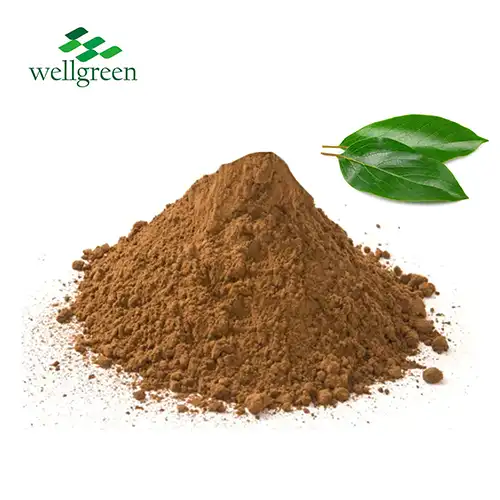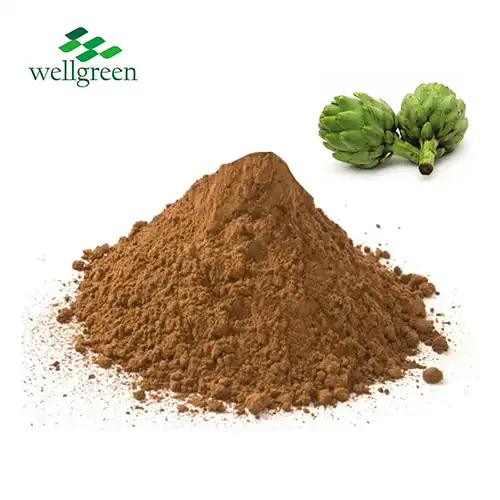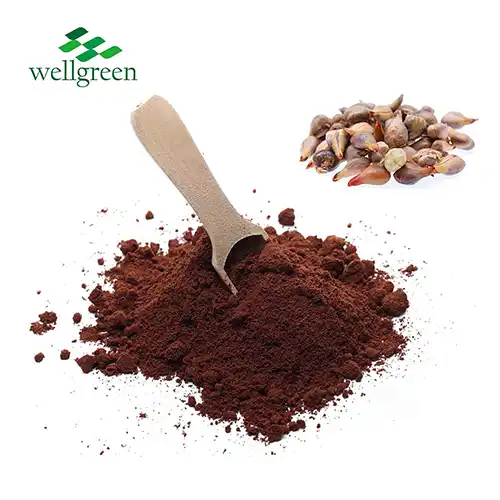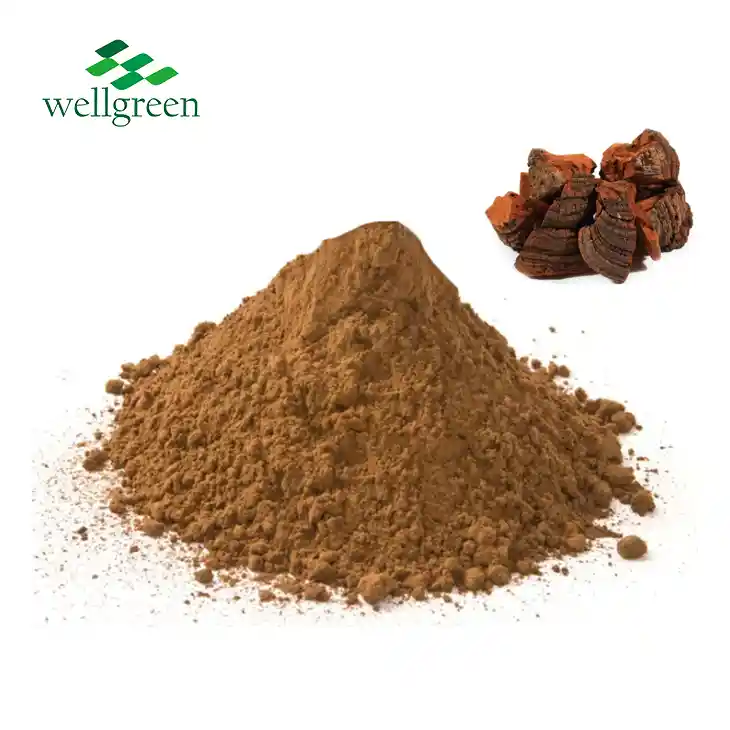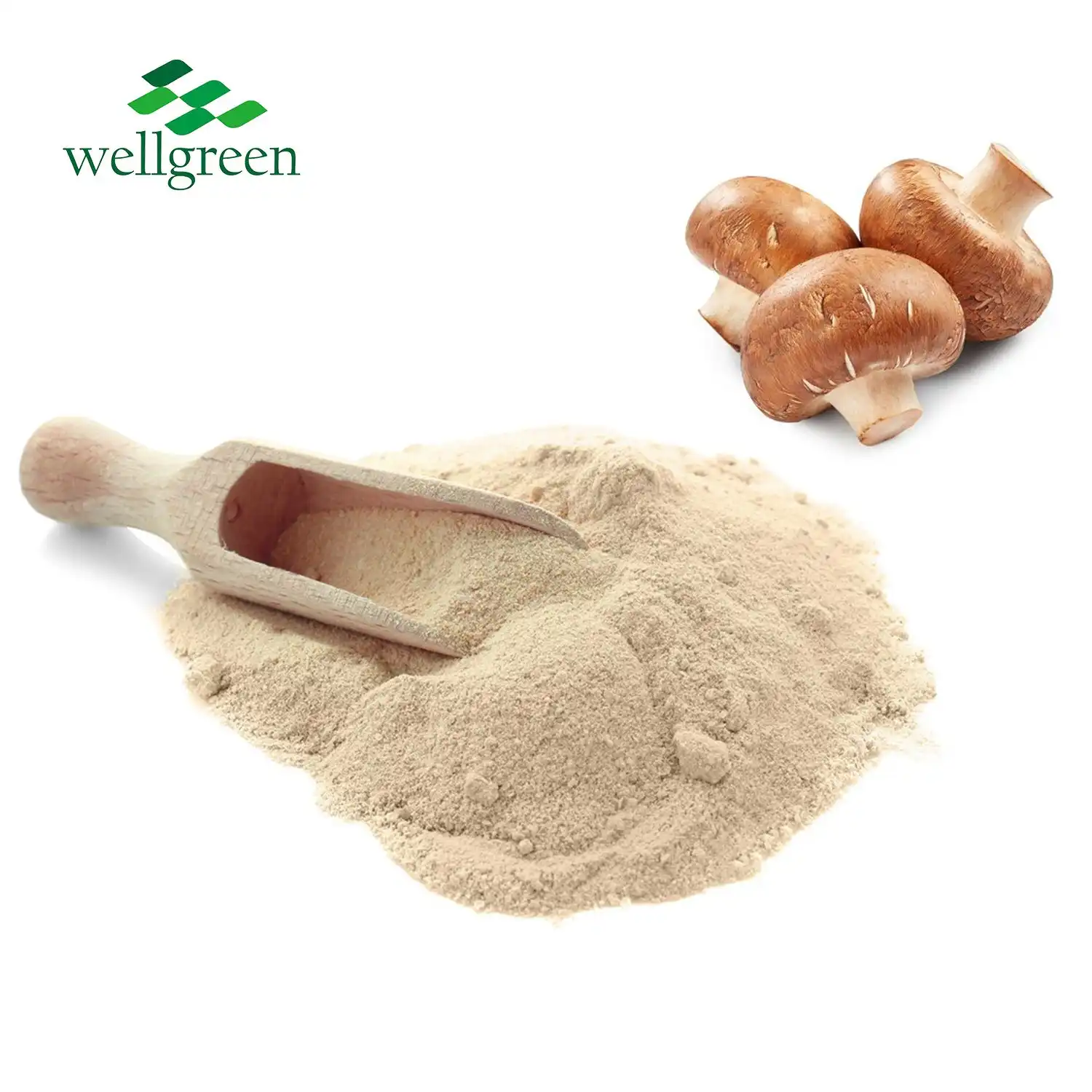Is piperine the same as black pepper?
2024-01-16 15:16:06
The association between piperine and black pepper is a culinary and scientific intrigue that often leads to questions about their relationship. This guide aims to elucidate the distinction and correlation between piperine and black pepper, exploring their roles, characteristics, and the impact of one on the other.
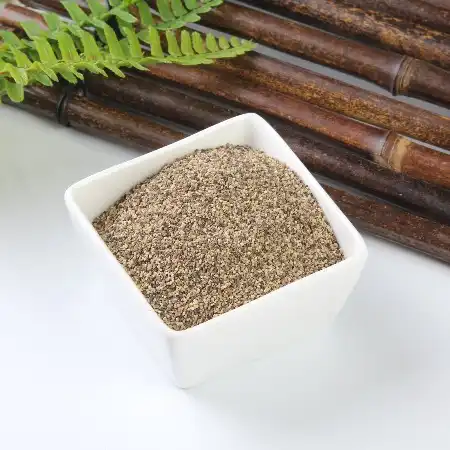 Piperine powder stands out as the principal bioactive compound within black pepper. It belongs to a class of alkaloids found in the Piperaceae family, giving black pepper its characteristic pungency. Beyond its role in flavor, piperine has garnered attention for its potential health benefits, including enhanced nutrient absorption and anti-inflammatory properties. Black pepper, derived from the Piper nigrum plant, is a ubiquitous spice in kitchens worldwide. Its distinct flavor, imparted by piperine, makes it a culinary staple with a rich history dating back centuries. While piperine is a key component, black pepper comprises a spectrum of compounds contributing to its overall flavor profile and potential health-promoting effects. Piperine content can vary within different varieties and forms of black pepper.
Piperine powder stands out as the principal bioactive compound within black pepper. It belongs to a class of alkaloids found in the Piperaceae family, giving black pepper its characteristic pungency. Beyond its role in flavor, piperine has garnered attention for its potential health benefits, including enhanced nutrient absorption and anti-inflammatory properties. Black pepper, derived from the Piper nigrum plant, is a ubiquitous spice in kitchens worldwide. Its distinct flavor, imparted by piperine, makes it a culinary staple with a rich history dating back centuries. While piperine is a key component, black pepper comprises a spectrum of compounds contributing to its overall flavor profile and potential health-promoting effects. Piperine content can vary within different varieties and forms of black pepper.
Piperine concentration is typically higher in whole peppercorns compared to ground pepper due to potential losses during grinding and processing. Piperine can be extracted from black pepper for various purposes, including supplements. Piperine supplements are sometimes used to capitalize on its bioavailability-enhancing properties in conjunction with other nutrients. While supplements offer concentrated piperine, the overall benefits of black pepper extend beyond piperine alone, emphasizing the importance of considering the whole spice in both culinary and potential therapeutic applications.
In essence, piperine and black pepper are intimately connected, with piperine being a key bioactive compound within the spice. However, the broader composition of black pepper contributes to its culinary versatility and potential health benefits. Whether enhancing the taste of a meal or potentially aiding nutrient absorption, black pepper remains a multifaceted spice cherished across cultures.
How much of black pepper is piperine?
Black pepper, a staple spice in culinary traditions worldwide, owes its distinctive flavor and aroma to a bioactive compound called piperine. This guide aims to unravel the intricate relationship between black pepper and piperine, exploring the percentage of piperine present in black pepper and its implications for culinary and health applications.
Piperine is a naturally being alkaloid set up in the fruits of black pepper( Piper nigrum) and other Piper species. It's responsible for the pungency specific of black pepper. The chance of piperine in black pepper varies, with Piper nigrum generally containing 5- 10% piperine by weight. Still, the precise content can be told by factors similar as the pepper's origin, civilization conditions, and processing methods. Piperine not only contributes to the spiciness of black pepper but also enhances the overall flavor profile of dishes. Its capability to stimulate taste buds adds depth and complexity to culinary creations. From seasoning savory dishes to being a crucial element in spice composites, black pepper is a protean component appreciated globally. The balance of piperine content plays a pivotal part in determining the pepper's culinary impact. Piperine is famed for its part in perfecting the bioavailability of certain nutrients, particularly curcumin from turmeric. This synergy has led to the combination of black pepper and turmeric in colorful traditional remedies and supplements. Piperine's bioavailability- enhancing parcels may contribute to its implicit health benefits, includinganti-inflammatory and antioxidant effects. However, the concentration needed for therapeutic effects may vary. The quality of black pepper is often evaluated based on its piperine content. Higher-quality peppers with optimal piperine powder levels are prized for their sensory attributes and potential health contributions.
The synergy between black pepper and piperine is a testament to the intricate dance of flavors in culinary traditions. Whether appreciated for its spiciness or harnessed for potential health benefits, the piperine content in black pepper adds a layer of complexity to the world of spices.
What are the negative effects of piperine?
Piperine powder bulk, the active compound responsible for the pungency of black pepper, has garnered attention not only for its implicit health benefits but also for certain concerns girding its usage. This part aims to exfoliate light on the negative effects associated with piperine consumption, offering a nuanced perspective for informed decision- timber.
 A notable concern linked to piperine consumption is its eventuality to beget gastrointestinal discomfort. High boluses may lead to symptoms similar as nausea, stomach cramps, or heartburn, particularly in individualities with sensitive digestive systems. Piperine's capability to inhibit certain enzymes involved in medicine metabolism raises concerns about implicit relations with specifics. This hindrance may alter medicine efficacity and poses a threat, especially for individualities on specific specifics. While antipathetic responses to piperine are rare, they aren't entirely barred. Some individualities may witness allergic responses, ranging from skin rashes to more severe responses. It's pivotal for users to be apprehensive of implicit allergic sensitivities. There's limited safety data regarding the consumption of piperine during gestation and breastfeeding. Due to the eventuality for adverse effects and misgivings, caution is advised, and discussion with healthcare professionals is recommended. While piperine's part in enhancing nutrient absorption is frequently praised, it can be a double- whetted sword. inordinate absorption of certain nutrients may lead to imbalances, potentially causing adverse health goods in the long run. Piperine is constantly included in supplements for its bioavailability- enhancing parcels. still, the lack of standardized formulations and varying concentrations in different products makes it challenging for users to gauge and control their intake directly.
A notable concern linked to piperine consumption is its eventuality to beget gastrointestinal discomfort. High boluses may lead to symptoms similar as nausea, stomach cramps, or heartburn, particularly in individualities with sensitive digestive systems. Piperine's capability to inhibit certain enzymes involved in medicine metabolism raises concerns about implicit relations with specifics. This hindrance may alter medicine efficacity and poses a threat, especially for individualities on specific specifics. While antipathetic responses to piperine are rare, they aren't entirely barred. Some individualities may witness allergic responses, ranging from skin rashes to more severe responses. It's pivotal for users to be apprehensive of implicit allergic sensitivities. There's limited safety data regarding the consumption of piperine during gestation and breastfeeding. Due to the eventuality for adverse effects and misgivings, caution is advised, and discussion with healthcare professionals is recommended. While piperine's part in enhancing nutrient absorption is frequently praised, it can be a double- whetted sword. inordinate absorption of certain nutrients may lead to imbalances, potentially causing adverse health goods in the long run. Piperine is constantly included in supplements for its bioavailability- enhancing parcels. still, the lack of standardized formulations and varying concentrations in different products makes it challenging for users to gauge and control their intake directly.
While piperine offers potential health benefits, it is crucial to acknowledge and address the associated negative effects. Users, especially those considering supplementation, should exercise caution, be mindful of dosage, and, if necessary, seek guidance from healthcare professionals. A nuanced understanding of both the positive and negative aspects of organic piperine powder is essential for making informed choices regarding its consumption.
Conclusion
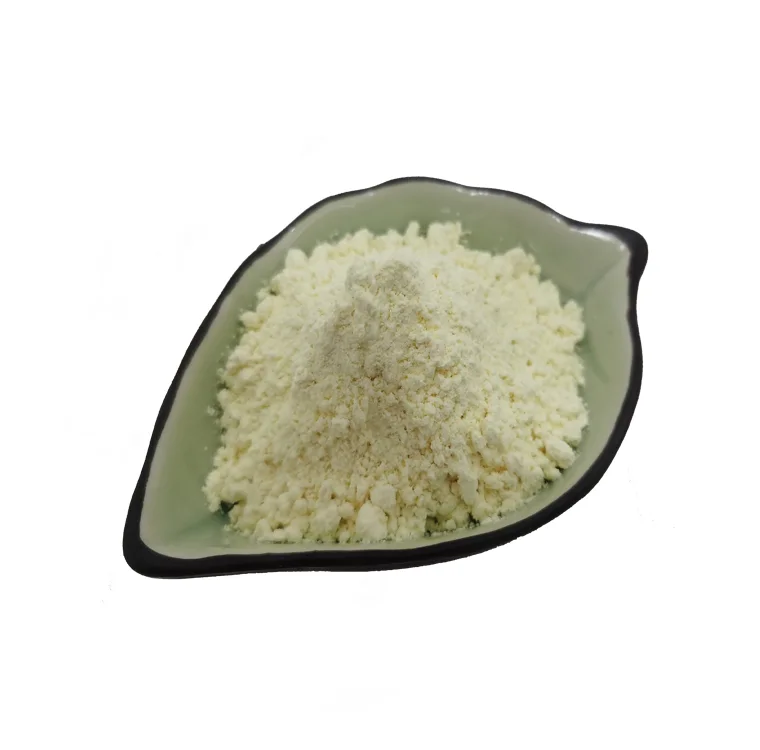 In summary, piperine is a key component of black pepper that gives it its characteristic flavor. However, black pepper consists of various other compounds as well. The amount of piperine in black pepper can vary, but on average, it accounts for about 5-9% of its weight. When consumed in moderation, piperine is generally safe. However, excessive consumption can lead to gastrointestinal irritation and may interact with certain medications. As with any dietary change, it is always best to consult with a healthcare professional before making any significant alterations to your diet.
In summary, piperine is a key component of black pepper that gives it its characteristic flavor. However, black pepper consists of various other compounds as well. The amount of piperine in black pepper can vary, but on average, it accounts for about 5-9% of its weight. When consumed in moderation, piperine is generally safe. However, excessive consumption can lead to gastrointestinal irritation and may interact with certain medications. As with any dietary change, it is always best to consult with a healthcare professional before making any significant alterations to your diet.
WELLGREEN is an innovation-driven manufacturer of herbal extracts since 2011 certified by ISO9001:2015, ISO22000, HALAL, KOSHER, HACCP, and Organic Certificate. If you need piperine powder, please contact us immediately, E-mail:wgt@allwellcn.com We can supply customized service as per your request.
References:
1.Butt, M. S., Pasha, I., & Sultan, M. T. (2013). Black Pepper and Health Claims: A Comprehensive Treatise. Critical Reviews in Food Science and Nutrition, 53(9), 875–886. doi:10.1080/10408398.2011.571799.
2.Srinivasan, K. (2007). Black Pepper and its Pungent Principle-Piperine: A Review of Diverse Physiological Effects. Critical Reviews in Food Science and Nutrition, 47(8), 735–748. doi:10.1080/10408390601062054.

